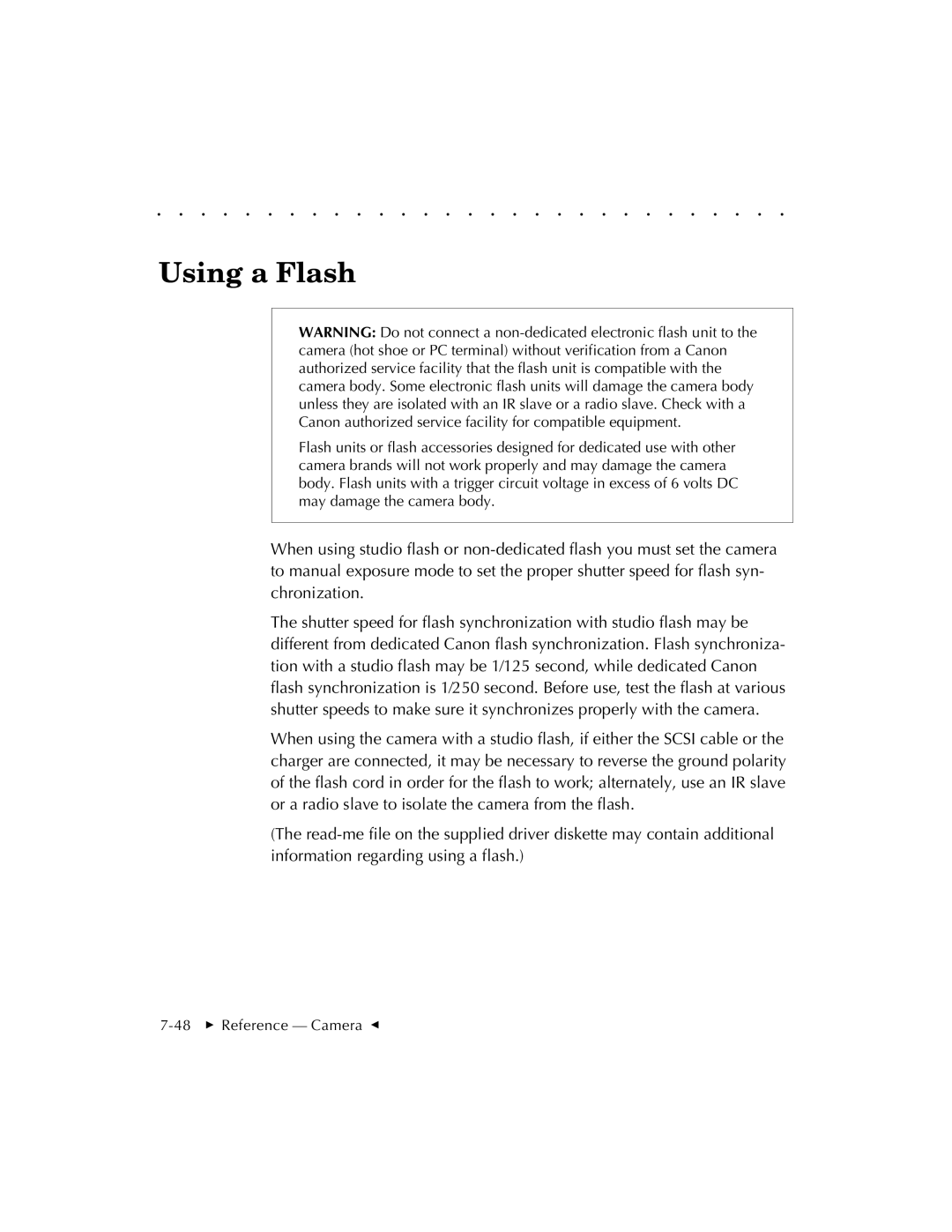
. . . . . . . . . . . . . . . . . . . . . . . . . . . . .
Using a Flash
WARNING: Do not connect a
Flash units or flash accessories designed for dedicated use with other camera brands will not work properly and may damage the camera body. Flash units with a trigger circuit voltage in excess of 6 volts DC may damage the camera body.
When using studio flash or
The shutter speed for flash synchronization with studio flash may be different from dedicated Canon flash synchronization. Flash synchroniza- tion with a studio flash may be 1⁄125 second, while dedicated Canon flash synchronization is 1⁄250 second. Before use, test the flash at various shutter speeds to make sure it synchronizes properly with the camera.
When using the camera with a studio flash, if either the SCSI cable or the charger are connected, it may be necessary to reverse the ground polarity of the flash cord in order for the flash to work; alternately, use an IR slave or a radio slave to isolate the camera from the flash.
(The
